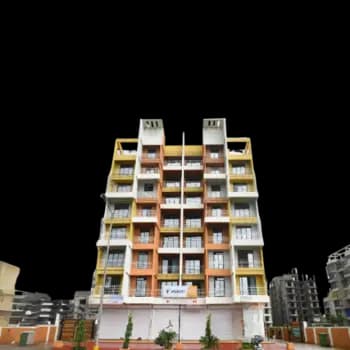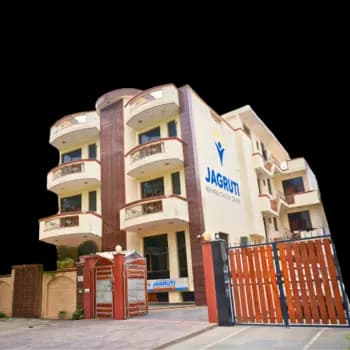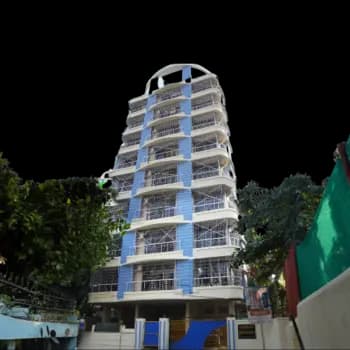Have There Been Times When You Felt Depressed or Hopeless in Life?

It is common to feel low, hopeless and lonely. India is battling political, social and financial unrest. With the rising population, increasing competition, and a struggle to maintain a good life, it is not uncommon to feel low.
Have there been times when you felt depressed? Yes? Then hear this out—feeling low is transient and is usually impacted by what’s happening around you. It is just a phase, and that too shall pass. However, these things are easier said than done. That is where rehabilitation and mental wellness centres come into play.
Have There Been Times When You Felt Depressed or Hopeless?
Yes, I felt sad and hopeless. In 9th grade, I studied hard to get the first rank in my class. But after trying my best, I was not able to achieve it. I got upset and felt that my hard work was wasted.
My mother sensed that something was wrong with me and shared the story of Dr. APJ Abdul Kalam. She told me how he faced failure in his rocket missions. But he never gave up. He worked even harder and became successful.
Her story made me feel better. I learnt that failure is not the end. Hard work always helps. This gave me the strength to stay hopeful and try again.
Why Am I Depressed?
Most of us have periods in life where we hit the wall, are anxious and stressed and do not know what’s next. Often termed as depression, there is more to the term. It’s your body trying to inform you—in the most severe way possible—that your current lifestyle is unhealthy. Science defines it as a common and serious medical chaos that negatively affects your feelings, thoughts, and actions.
The top causes of depression include:
- A recent stressor - work pressure, loss of job, recent hectic travel schedules, death in the family, other bad news, recent diagnosis of a major health issue, personal issues, etc.
- Family history of depression and mental health issues
- Pregnancy, birthing and postpartum depression
- Menopause and other hormonal issues
- Loneliness
- Alcohol addiction and drug abuse
- Other addictions
- Other mental health issues
If you or a loved one has faced any of the above issues, it's best to be vigilant about the related symptoms of depression.
What to Do If You Feel Depressed?
For starters, you need to look out for common symptoms of depression:
- Poor sleep at night
- Negative conversations
- Lack of energy
- Loss of appetite
- Lack of sexual drive
- Lack of concentration, willingness to step out of the house and more.
- Irritability and anxiety for months
If you notice a combination of the above symptoms, it's best to contact a rehabilitation or mental wellness centre. Have there been times when you felt depressed or hopeless? If yes, then here’s how rehab centres can solve the issue.
Expert analysis:
The best rehabilitation centres have a team of doctors, psychiatrists, psychologists, caregivers, nurses and paramedics. Experts and the best hands in the team always cater to the chief complaints and co-relate with the symptoms. It begins with—have there been times when you felt depressed? No one with depression is single-handedly treated; there is always a team preparing a treatment plan.
Root Cause Analysis:
Depression often stems from a combination of genetic, biological, environmental, and psychological factors. This may be due to past traumas, unresolved emotional conflicts, chronic stress, or other mental health conditions. When experts try to understand the root causes, they try to figure out the specific needs of the person. This helps with targeted therapy.
One-On-One Therapy:
One-to-one and group sessions are necessary. Cognitive-behavioural therapy (CBT), dialectical behaviour therapy (DBT), or psychodynamic therapy. These help the person develop coping techniques, challenge negative thought patterns, and increase emotional resilience. One-on-one therapies ensure that the treatment is highly customized and targeted. This is key to successful and sustained healing.
24/7 Care:
Care around the clock helps monitor the patient’s progress and adjust treatments when necessary. Another quick contribution of 24/7 is that it prevents isolation and makes people feel secure and stable. It also saves people from emergencies or from taking unwarranted steps.
Good stay, with a focus on sports and socialisation:
Sports socialisation and regular physical exercise reduce symptoms of depression—they release the happy hormone endorphins and improve overall mood. They also counteract isolation and loneliness. They help encourage patients to rediscover joy and purpose in life.
Post-rehab care
Support groups that check on people with depression after therapy prevent relapses of depression and are integral to sustainable recovery.
Getting Rid of Depression with Jagruti Rehabilitation Centre
Jagruti Rehab has been in the mental wellness, rehabilitation and de-addiction industry for over 16 years. As one of the many pioneers in top mental health issues like dementia, Jagruti Rehab Centre can be the go-to for depression care that is personalised and evidence-backed. Feel free to reach out to us to know more.
Frequently Asked Questions
Have there been times when you felt depressed in class 10?
Yes, I had felt depressed when I was in Class 10. One subject was very hard, even though I studied. I thought I would fail and was very bitter. My family noticed this and gave me hope. They told me to stay positive and believe in your hard work. Their support gave me a positive attitude. I believe we can achieve anything by hard work.
What was happening when you felt depressed?
When I was depressed, I felt a deep sadness for more than two weeks. I lost interest in things that usually brought me happiness. I had trouble sleeping and felt extremely tired. I also found it hard to concentrate. Many times, I felt hopeless, and at times, I didn't feel like doing anything. My thoughts were negative, and I felt no motivation. It was hard to find any joy in things, and I found it hard with my feelings.
What are 5 examples of depression?
Here are 5 types of depression. Persistent Depressive Disorder, Postpartum Depression, Bipolar Depression, Seasonal Affective Disorder, and Psychotic Depression.







